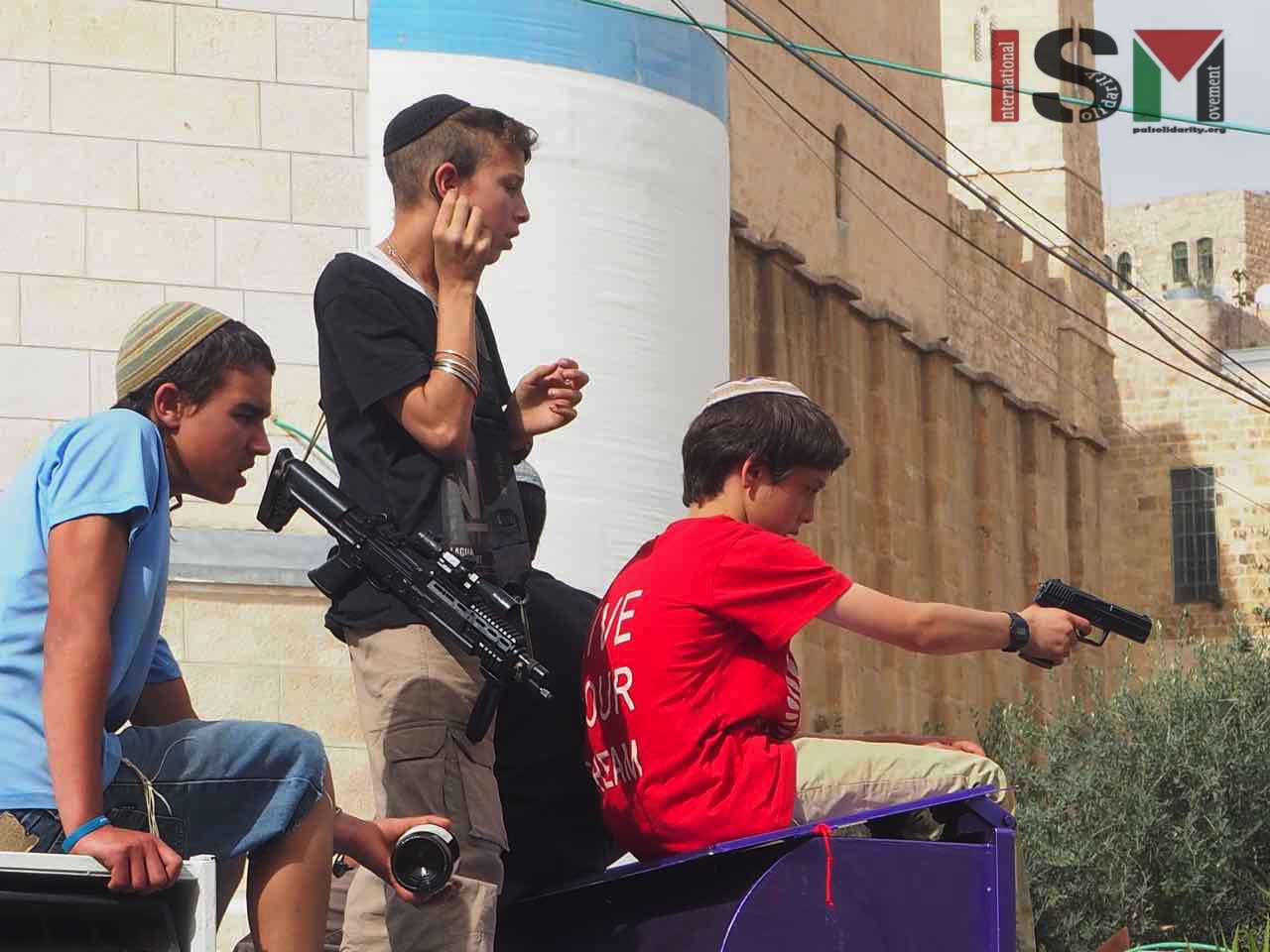Category: Hebron
-

Youth Against Apartheid
29th March 2016 | International Solidarity Movement, al-Khalil team | Hebron, occupied Palestine On Sunday, the new team of Youth Against Apartheid was honored to meet with each other for the first time. The wonderful youth of al-Khalil city (Hebron) who have dedicated their time during the past few years doing voluntary work and activities…
-

Israeli forces return to dehumanizing number system in wake of Hebron killings
26th March 2016 | International Solidarity Movement, al-Khalil team | Hebron, West Bank, occupied Palestine After completely closing Shuhada checkpoint to Palestinians in occupied al-Khalil (Hebron) on Thursday, 24th March 2016, Israeli forces have now returned to the practice of ‘numbering’ Palestinian residents in order to restrict access to the adjacent neighborhoods. Soldiers are now…
-

Illegal settlers celebrate Purim after cold-blooded murder of Palestinian youths
24th March 2016 | International Solidarity Movement, al-Khalil team | Hebron, occupied West Bank On the 24th March, Israeli settlers from the illegal settlements in occupied al-Khalil (Hebron) celebrated the holiday of ‘Purim’. The settlers marched through the Old City of al-Khalil, starting off from the spot where just a few hours before, Israeli forces…
